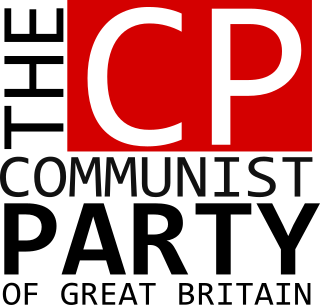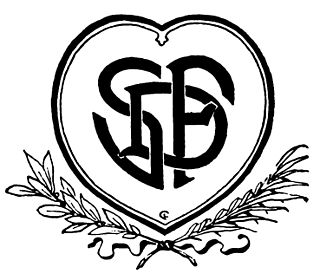Related Research Articles

A think tank, or policy institute, is a research institute that performs research and advocacy concerning topics such as social policy, political strategy, economics, military, technology, and culture. Most think tanks are non-governmental organizations, but some are semi-autonomous agencies within government, and some are associated with particular political parties, businesses or the military. Think tanks are often funded by individual donations, with many also accepting government grants.

The Independent Labour Party (ILP) was a British political party of the left, established in 1893 at a conference in Bradford, after local and national dissatisfaction with the Liberals' apparent reluctance to endorse working-class candidates. A sitting independent MP and prominent union organiser, Keir Hardie, became its first chairman.

The Scottish Trades Union Congress (STUC) is the national trade union centre in Scotland. With 40 affiliated unions as of 2020, the STUC represents over 540,000 trade unionists.
New Right is a term for various right-wing political groups or policies in different countries during different periods. One prominent usage was to describe the emergence of certain Eastern European parties after the collapse of the Soviet Union. In the United States, the Second New Right campaigned against abortion, homosexuality, the Equal Rights Amendment (ERA), the Panama Canal Treaty, affirmative action, and most forms of taxation.

Socialism in New Zealand had little traction in early colonial New Zealand but developed as a political movement around the beginning of the 20th century. Much of socialism's early growth was found in the labour movement.

The National Union of Rail, Maritime and Transport Workers is a British trade union covering the transport sector. Its current President is Alex Gordon and its current General Secretary is Mick Lynch.

Labour Students is a student organisation within the Labour Party of the United Kingdom. It is a network of affiliated college and university clubs, known as Labour Clubs, who campaign in their campuses and communities for Labour's values of equality and social justice.
The soft left, also known as the open left, inside left and historically as the Tribunite left, is a faction within the British Labour Party. The term "soft left" was coined to distinguish the mainstream left, represented by former leader Michael Foot, from the hard left, represented by Tony Benn. People belonging to the soft left may be called soft leftists or Tribunites.

The Young Fabians is the under age 31 section of the Fabian Society, a socialist society in the United Kingdom that is affiliated with the Labour Party (UK). The Young Fabians operate as a membership-driven think tank that organises policy debates, research projects, publications, conferences, and international delegations. The organisation holds no collective position on policy.

Compass is a British centre-left pressure group, aligned with the Labour Party which describes itself as: "'An umbrella grouping of the progressive left whose sum is greater than its parts". Like the formally Labour-affiliated think tank the Fabian Society it is a membership-based organisation and thus seeks to be a pressure group and a force for political organisation and mobilisation.
The Labour Representation Committee (LRC) is a British socialist pressure group within the Labour Party and wider labour movement. It is often seen as representing the most left-wing members of the Labour Party.

The Labour Party is a left-wing and populist political party in Argentina. It was created in 1945 by prominent leaders of the trade union movement in Argentina shortly before the 1946 Argentine general election and mobilized working-class support for emerging populist leader Juan Perón. The party run Perón’s presidential ticket for the election. It was inspired and based on the British Labour Party and is considered to have been the first instance of direct electoral mobilization of the working class in Argentina. Its goal was to bring Perón to power and institutionalize the political power of Argentinian trade union movement. After winning the 1946 presidential election, Perón merged the party into his Peronist Party.

Socialism in the United Kingdom is thought to stretch back to the 19th century from roots arising in the aftermath of the English Civil War. Notions of socialism in Great Britain have taken many different forms from the utopian philanthropism of Robert Owen through to the reformist electoral project enshrined in the birth of the Labour Party that was founded in 1900.

The Communist Party of Great Britain (CPGB) was the largest communist organisation in Britain and was founded in 1920 through a merger of several smaller Marxist groups. Many miners joined the CPGB in the 1926 general strike. In 1930, the CPGB founded the Daily Worker. In 1936, members of the party were present at the Battle of Cable Street, helping organise resistance against the British Union of Fascists. In the Spanish Civil War, the CPGB worked with the USSR to create the British Battalion of the International Brigades, which party activist Bill Alexander commanded.
Bright Blue is an independent think tank and pressure group advocating for liberal conservative and one nation conservative ideas and policies, based in the United Kingdom. Founded in 2014 by British entrepreneur Ryan Shorthouse, Bright Blue aims to "defend and champion liberal, open, democratic and meritocratic values, institutions and policies." Bright Blue is a membership-based think tank, with membership open to anyone who identifies as a liberal conservative.

The Social Democratic Federation (SDF) was established as Britain's first organised socialist political party by H. M. Hyndman, and had its first meeting on 7 June 1881. Those joining the SDF included William Morris, George Lansbury, James Connolly and Eleanor Marx. However, Friedrich Engels, Karl Marx's long-term collaborator, refused to support Hyndman's venture. Many of its early leading members had previously been active in the Manhood Suffrage League.

Inventing the Future: Postcapitalism and a World Without Work is a 2015 monograph by Nick Srnicek and Alex Williams, published by Verso Books.

The Tony Blair Institute (TBI), commonly known by its trade name the Tony Blair Institute for Global Change, is a non-profit organisation set up by former UK Prime Minister Tony Blair.
A progressive alliance in the UK is the idea of a cross-party political alliance supporting "progressive politics", generally in opposition to right-wing parties, chiefly the Conservative Party.
References
- ↑ "Think Tank Awards « Prospect Magazine". www.prospectmagazine.co.uk. Archived from the original on 19 May 2011. Retrieved 13 January 2022.
- ↑ "Labour left flexes muscles in merger". TheGuardian.com . 18 May 2006.